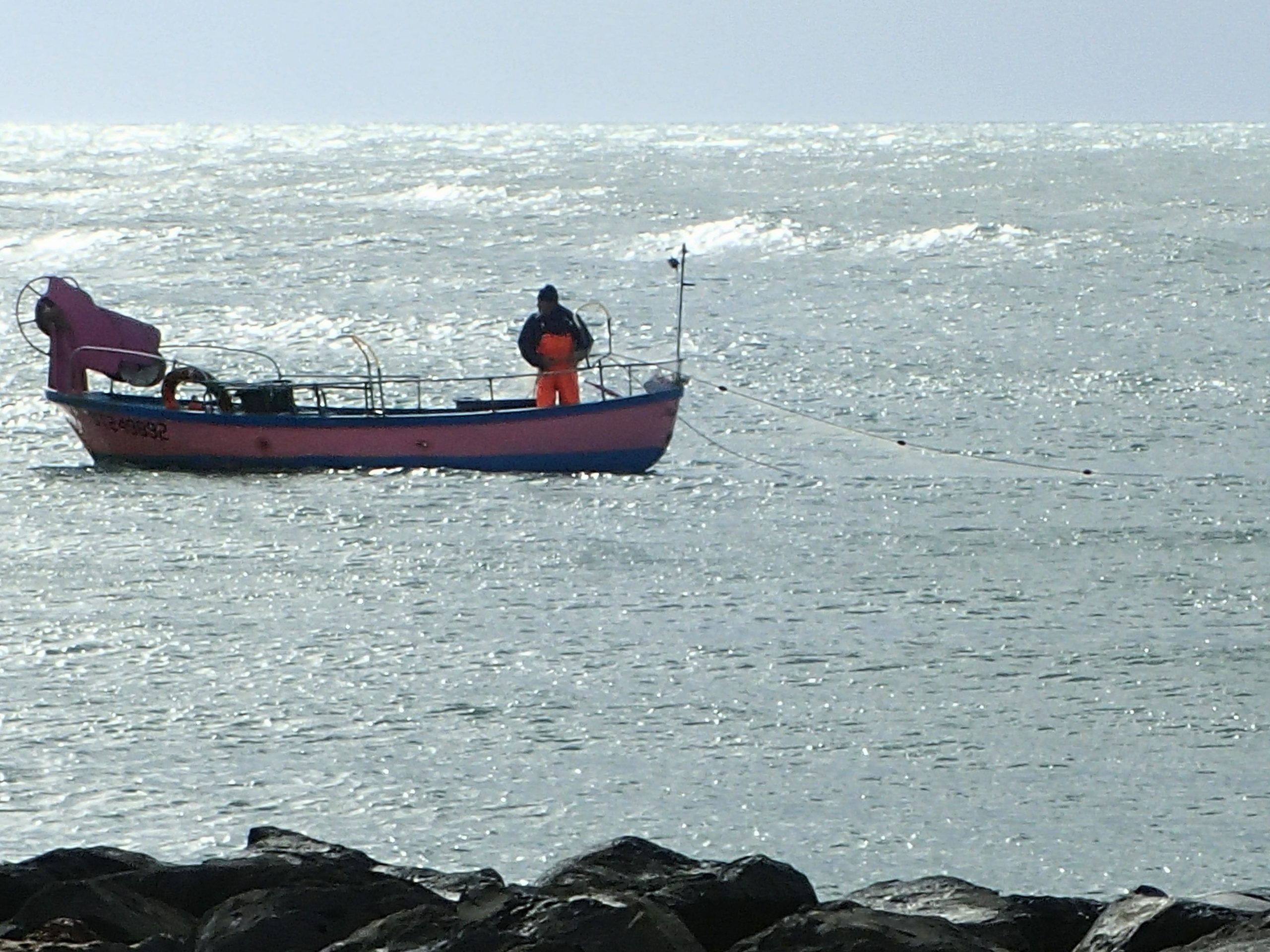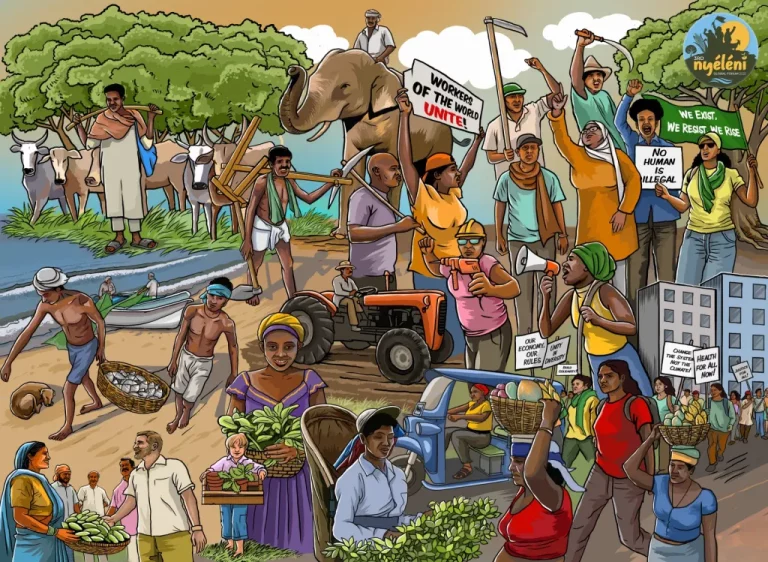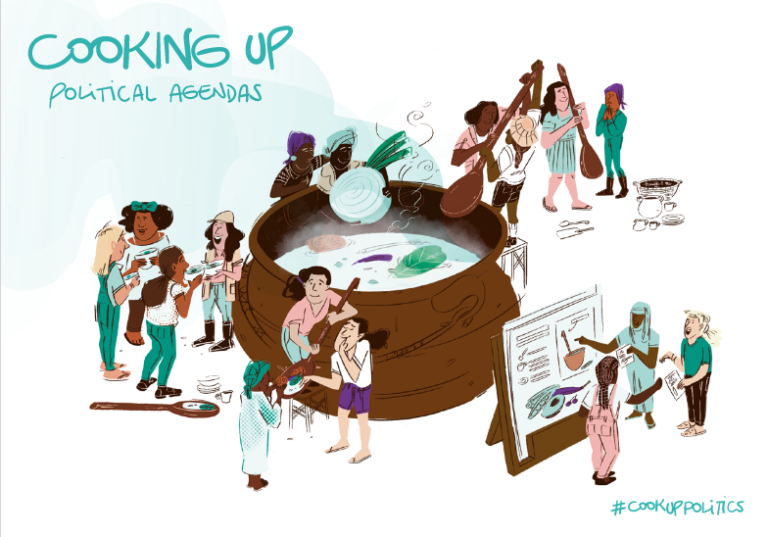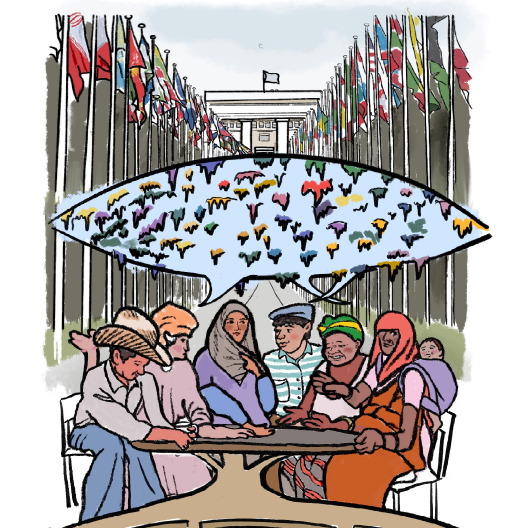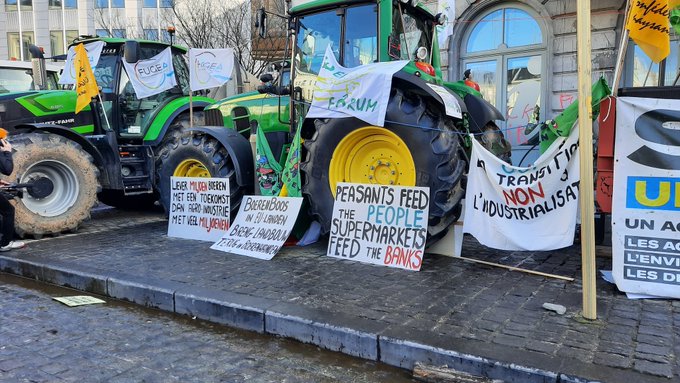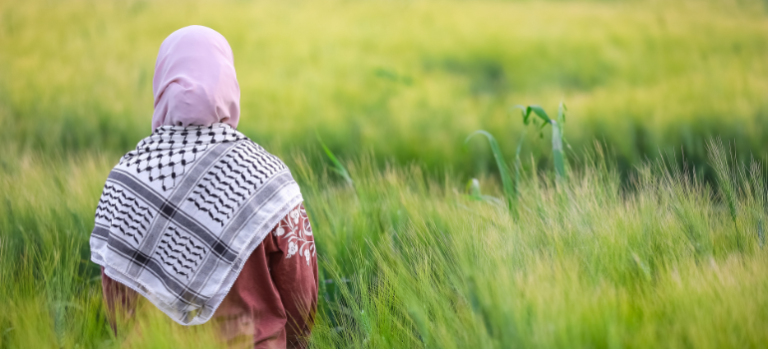Fisheries and the right to food in the context of climate change
Report of the Special Rapporteur on the right to food, Michael Fakhri
At the 55th session of the Human Rights Council in March 2024, the Special Rapporteur on the right to food, Michael Fakhri, presented his annual report. This year, he highlights the challenges facing small-scale fishermen in the context of the climate crisis. He calls on States to take urgent action to protect the rights of small-scale fishermen, fishworkers and indigenous peoples, while preserving the biodiversity of aquatic ecosystems, in the face of a dominant system that promotes large-scale industrial fishing.
Findings: impacted and marginalized populations at the heart of food sovereignty
The Special Rapporteur’s annual report focuses on people whose livelihoods and food supply are linked to the oceans and rivers: small-scale fishermen, fish workers and indigenous peoples. To consider the right to food of these populations, he begins by outlining their current situation. According to the Rapporteur, they are facing two current crises: overfishing and climate change, while still coping with the consequences of the Covid-19 pandemic, which had a severe impact on them (§2-6).
The Special Rapporteur would also like to highlight both the common and specific problems of the populations discussed in the report. They share a predominant role in feeding their respective communities and in their economic life. They are also the first to be impacted by the effects of climate change, notably the degradation of marine ecosystems and extreme weather events (hurricanes, heatwaves), while playing an important role in preserving the environment and preventing the effects of climate crises (§7). Finally, they are all politically marginalized, and their voices are rarely heard or taken into account when decisions are made that affect them (§8).
As far as small-scale fishermen are concerned, the Special Rapporteur highlights the Voluntary Guidelines or Securing Sustainable Small-Scale Fisheries in the Context of Food Security and Poverty Eradication. For the Rapporteur, they “are necessary to address the long-standing
political marginalization and exclusion of small-scale fishing communities” (§19).
For the Special Rapporteur, self-determination lies at the heart of the relationship between indigenous peoples and their coastal and marine environment (§22). He notes that indigenous peoples who fish consume 15 times more fish products than the rest of the population, making them particularly dependent from a nutritional point of view (§21).
The Special Rapporteur also highlights the gender issue in the fishing industry, and in particular the extremely gendered division of labor in this sector: men in catching or production, and women in processing and sales. He points out that the overwhelming majority of women work in the informal sector, and are therefore extremely vulnerable (§26-27).
The Rapporteur devotes several paragraphs to the situation of fish workers, stressing in particular the dangerous nature of this sector. Throughout the production chain, workers are exposed to sometimes lethal dangers (§32). The Rapporteur is also concerned about wage conditions, as workers have very little job security and rarely receive a decent wage (§33-34). Similarly, he notes the virtual absence of extended social protection in this sector (§39). It also recalls the prevalence of child labor in the sector and its danger from all points of view (§36-37). Finally, he points out that there is little collective organization, association or trade union, both because of the informality of the sector, and because of blockages by employers (§35).
For a political response to crises
It is in this context that the Rapporteur points out that overfishing and the industrial exploitation of marine resources have reached critical levels. Between 1974 and 2017, the proportion of stocks exploited at biologically unsustainable levels rose from 10% to 34.2%. Climate crises exacerbate these problems by disrupting marine ecosystems and displacing fish populations (§41). In Mexico, for example, rising water temperatures in various regions are causing extreme weather phenomena (§45). The Rapporteur also points out that “certain populations of plant species have already disappeared locally, and forecasts reveal a trend towards higher extinction rates, particularly in warmer regions”. At the same time, offshore oil and gas exploitation worsens the situation by polluting the oceans and hampering the livelihoods of artisanal fishermen, as is the case in Guyana where these platforms block traditional fishing grounds (§42-44).
Local initiatives and a holistic approach to adapting to climate change do, however, offer glimmers of hope. In South Africa, for example, solidarity among small-scale fishermen, reinforced by favorable court rulings that have recognized the consequences of oil and gas exploration on the rights of small-scale fishermen, demonstrates the resilience potential of coastal communities (§46).
To ensure a sustainable future, the Rapporteur believes that “adaptation requires a set of decisions that are as much political, social and cultural as they are economic and ecological” (§47), with inclusive policies and judicious use of traditional and indigenous knowledge.
International law framework
To shed light on the situation of these populations, the Rapporteur looks at the international legal framework. His view of the latter is highly critical, asserting that international conventions have often favored intensive exploitation of marine resources without regard for the needs of coastal communities and indigenous peoples. For example, the 1982 United Nations Convention on the Law of the Sea, while aiming to reconcile extraction with the restoration of fish stocks and biodiversity, considers the oceans first and foremost as natural resources to be exploited and managed by States in such a way as to enable the extraction of the maximum possible resources (§52). The Rapporteur stresses that fishing subsidy policies, often misguided, have contributed to fleet overcapacity and overfishing, jeopardizing the sustainability of stocks (§71-72).
Commodification and financialization of oceans and aquatic life
In addition to the challenges of overfishing and climate crises, these communities are facing the growing commodification and financialization of the oceans. According to the Rapporteur, three economic systems pose major problems: the blue economy, blue transformation and blue finance. These approaches, focused on economic growth, often neglect human rights, food security and the needs of small-scale fishermen.
Blue finance is a system that turns the ocean into a financial asset, accentuating inequalities, compromising transparent governance and creating risks of human rights violations, particularly for indigenous peoples and small-scale fishermen. One of the most common instruments is debt-for-nature swaps. Under this practice, an industrialized country swaps the debt of a developing country for a promise by the latter to devote all or part of the sum owed to environmental protection. However, there is a lack of clear financial and ecological benefits, high transaction costs, lack of transparency and potential tax-haven detour (§90).The risks are heightened by the adoption of the Global Biodiversity Framework (Kunming-Montreal Framework), in respect of which indigenous peoples point to the risk of dispossession of their territories through the creation of colonial conservation arrangements, notably through the establishment of protected areas off-limits to human activities (§90).
Similarly, the Rapporteur stresses that the blue economy system promoted by the World Bank, focused on the sustainable use of marine resources to promote economic growth, is an approach that in no way deviates from the usual course of the capitalist economy (§76) and often neglects human rights, food security and the social and economic elements necessary for these populations to be able to provide for themselves, in particular by ignoring small-scale fishermen engaged in the equitable management of marine resources within community systems (§77-78).
The FAO’s Blue Transformation system for balancing economic interests with human rights through the development of sustainable aquatic food systems is singled out by the Rapporteur. Aquaculture is envisaged as a solution to the depletion of fish stocks and food insecurity, but the Rapporteur points out that it entails risks such as the spread of disease and the escape of farmed fish contaminating wild stocks, thus affecting indigenous populations, and above all that “hunger and malnutrition are not due to a lack of food and are therefore not a production problem.” (§82).
Conclusion and recommendations
At the same time, the major importance of the adoption in 2018 of the United Nations Declaration on the Rights of Peasants and Other People Working in Rural Areas is apparent throughout the report. The Rapporteur does not hesitate to use the Declaration as a basis and support for his recommendations, such as the one in which he recalls that “States must protect water-related ecosystems […], and strive to restore them, considering the close ties that unite fishermen with nature”, thus echoing paragraphs 4 and 5 of article 21 of the Declaration. He also places emphasis on UNDROP with regard to the implementation of the Voluntary Guidelines, and in particular the right to participation of fishermen and fishery workers (§19). He also draws on UNDROP to recall the right of workers to collective organization (§35), a right found in its article 13§5. Beyond these examples, it should be noted that the Special Rapporteur cites UNDROP each time one of the rights it contains is concerned. This systematic use shows that UNDROP is well integrated as a legitimate basis for claiming rights and for the changes needed to implement them.
Faced with these complex challenges, the Special Rapporteur proposes a number of avenues to explore. In general, he recommends that States recognize and support small-scale fishers, indigenous peoples and fishworkers, by ensuring their participation in decision-making processes (§94). More specifically, states should protect customary land rights and the rights of indigenous peoples, as well as the right of women fishworkers to decent work (§96). They should also preserve aquatic ecosystems, taking into account local knowledge and supporting small-scale fishermen in their activities (§97). To guarantee fairness on the markets, states should set up social protection schemes, improve access to finance and markets, and strengthen the negotiating capacity of fishing workers (§98). The rapporteur stresses the strategic importance of creating national action plans for small-scale fishing to support the implementation of the Voluntary Guidelines for Securing Sustainable Small-Scale Fisheries, and of rethinking the blue economy approach by prioritizing human rights and environmental sustainability (§101).

